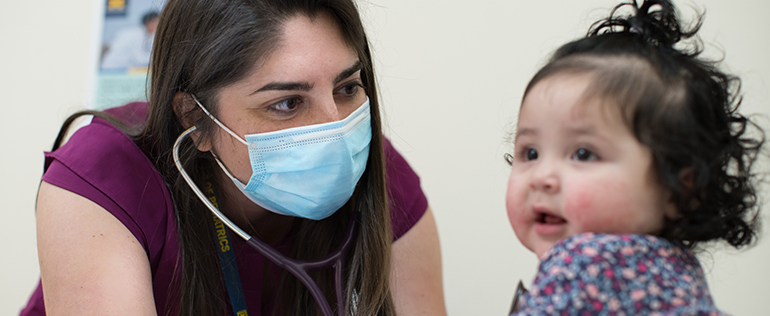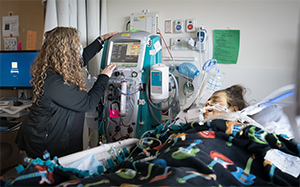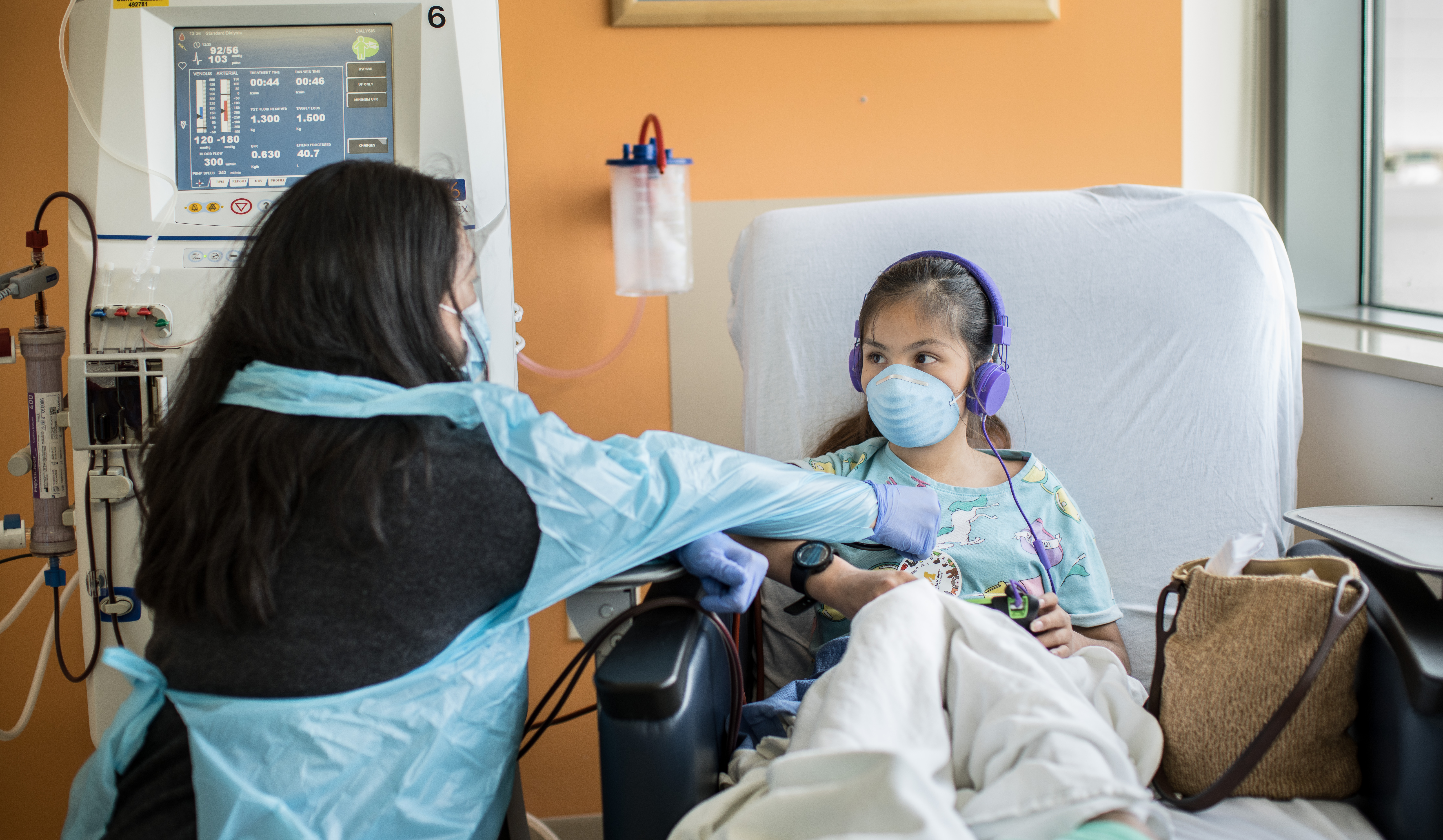
Year 1
The first year of the fellowship program is dedicated to learning the clinical care of patients. Inpatient and outpatient service alternates in two week blocks over the first year. Cumulatively, fellows have 6 months of inpatient service, 5 months of outpatient service and 4 weeks of vacation time.

Inpatient: During the first year, fellows spend 6 months participating in the direct care of hospitalized patients. The Pediatric Nephrology service admits patients to the general care floor and provides consultation for patients on the general care floors and in the intensive care units. This service includes needs for acute dialysis (peritoneal dialysis, hemodialysis, and continuous renal replacement therapy) and therapeutic plasma exchange.
Fellows will become proficient in the prescribing and supervising all modalities of dialysis; performing native and transplant kidney biopsies; providing care to new kidney transplant patients and post-operative renal revascularization patients. Fellows will learn how to place acute peritoneal dialysis catheters. Fellows are supervised at all times by faculty members.
Outpatient: Fellows spend 5 months in the outpatient setting. Fellows participate in three half-day clinics weekly. Fellows are supervised in clinic by faculty members.
Starting in the first year, trainees will have their own continuity clinics. In addition, they will participate in general nephrology clinics and specialty clinics including transplant clinic, transplant transition clinic, glomerular disease clinic, renovascular hypertension clinic and the interdisciplinary systemic inflammation clinic.
During their outpatient time, fellows will participate in phone triage and reviewing new outpatient consultation requests.
It is also during this time that fellows will participate in elective blocks including:
- Dialysis rotation: Two 2-week dedicated blocks in the dialysis unit for trainees to gain dedicated exposure to all aspects chronic and acute dialysis care
- Pediatric urology rotation: One 2-week dedicated block for trainees to understand the evaluation and management of patients with urologic disease and observe common pediatric urology surgeries
- Transplant rotation: One 1-week block for trainees with dedicated time to observe organ procurement (deceased and living) and kidney transplants and to participate in the pre-transplant evaluation process
- Radiology/pathology rotation: One 1-week block for trainees to rotate with the departments of radiology and pathology to gain knowledge of the roles of imaging/diagnostics and histology in the diagnosis and management of renal disease.
Dialysis: Fellows are involved in the longitudinal care of chronic dialysis patients and participate in monthly ESRD multidisciplinary rounds and dialysis clinics. For those patients on hemodialysis, fellows are expected to do weekly visits. Fellows will be first call for questions on their primary dialysis patients.
Call: Fellows are on call only during their inpatient blocks. During the week, fellows are first-call on Monday and Wednesday nights. On Tuesday and Thursday nights, faculty covers first-call responsibilities.
Years 2 and 3
The majority of the second and third years is dedicated to academic pursuits including research and scholarly activities. These two years are devoted to developing skills and participating in training that will prepare fellows for a successful career in academic medicine. With the breadth of opportunity for research and scholarly activity available at the University of Michigan, fellows work with the program director and their Scholarly Oversight Committee to ensure a tailored and individualized plan for these two years.
Upper year fellows will continue to participate in clinical service. Each year, fellows have 4 weeks of vacation time.

Research and Scholarly Activates: Fellow will have up to 80% time depending on NIH training grant support, research plans, and overall fellow career goals. Fellows work with their Scholarly Oversight Committee and the program director to identify an appropriate balance between dedicated time for research and clinical service as well as ensure successful completion of their scholarly activities as required by the American Board of Pediatrics.
Inpatient: Fellows have six weeks and 8-10 weekends of inpatient service during the second and third years. For fellows who anticipate a clinical career path, additional weeks of clinical service can be arranged to allow for increased clinical exposure and experience.
Outpatient: Fellows participate in one half-day clinic weekly. Two clinics per month will be the fellows’ continuity clinic. The other weekly clinics will be in the general nephrology or specialty clinics.
Dialysis: Fellows are expected to continue to participate in the longitudinal care of dialysis patients throughout all years of training. The number of patients will be at the discretion of the program director and the medical director of the dialysis unit and will take into account individual fellows’ career paths.
Call: Fellows do not take call unless they are on their scheduled weeks/weekends of inpatient service.



